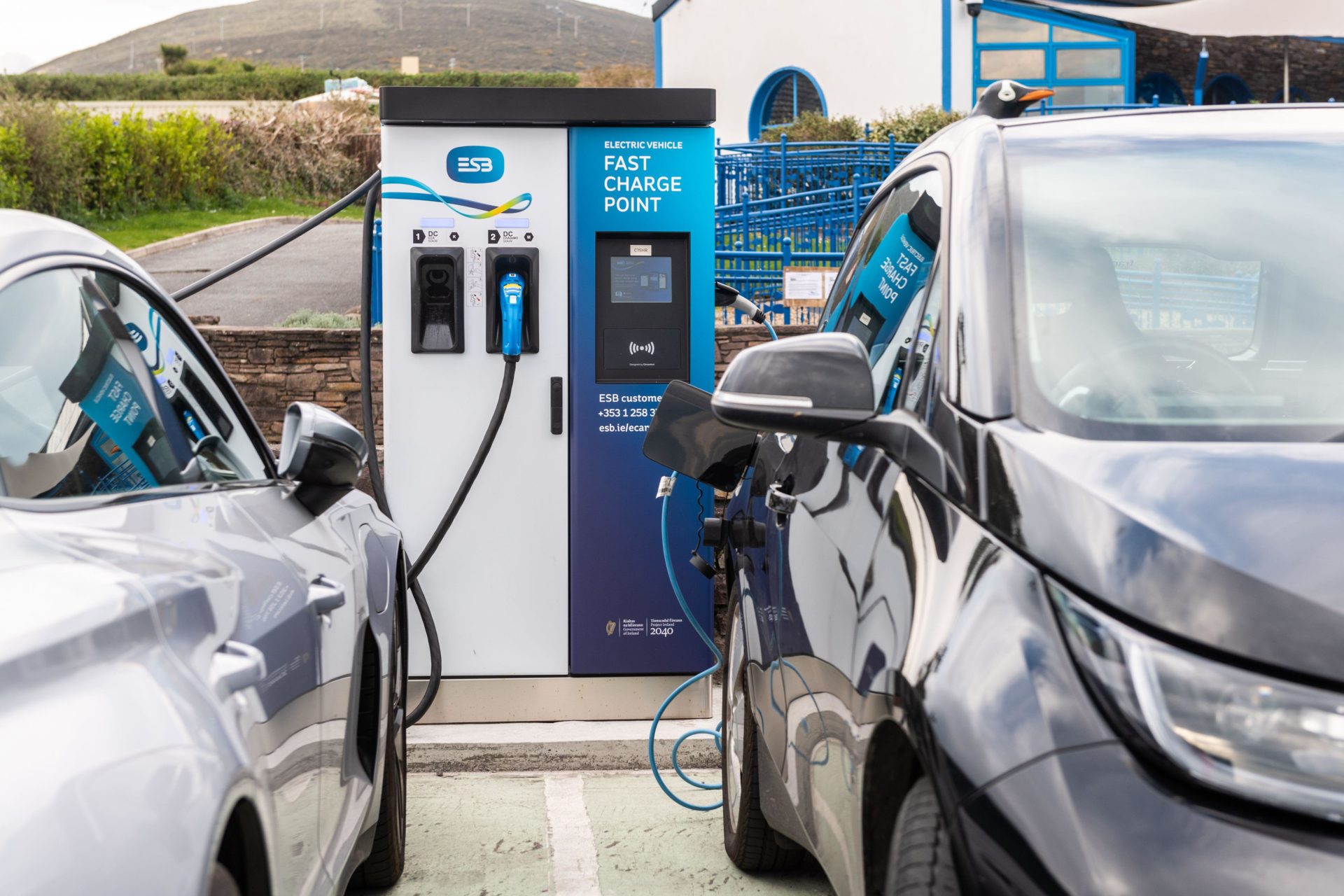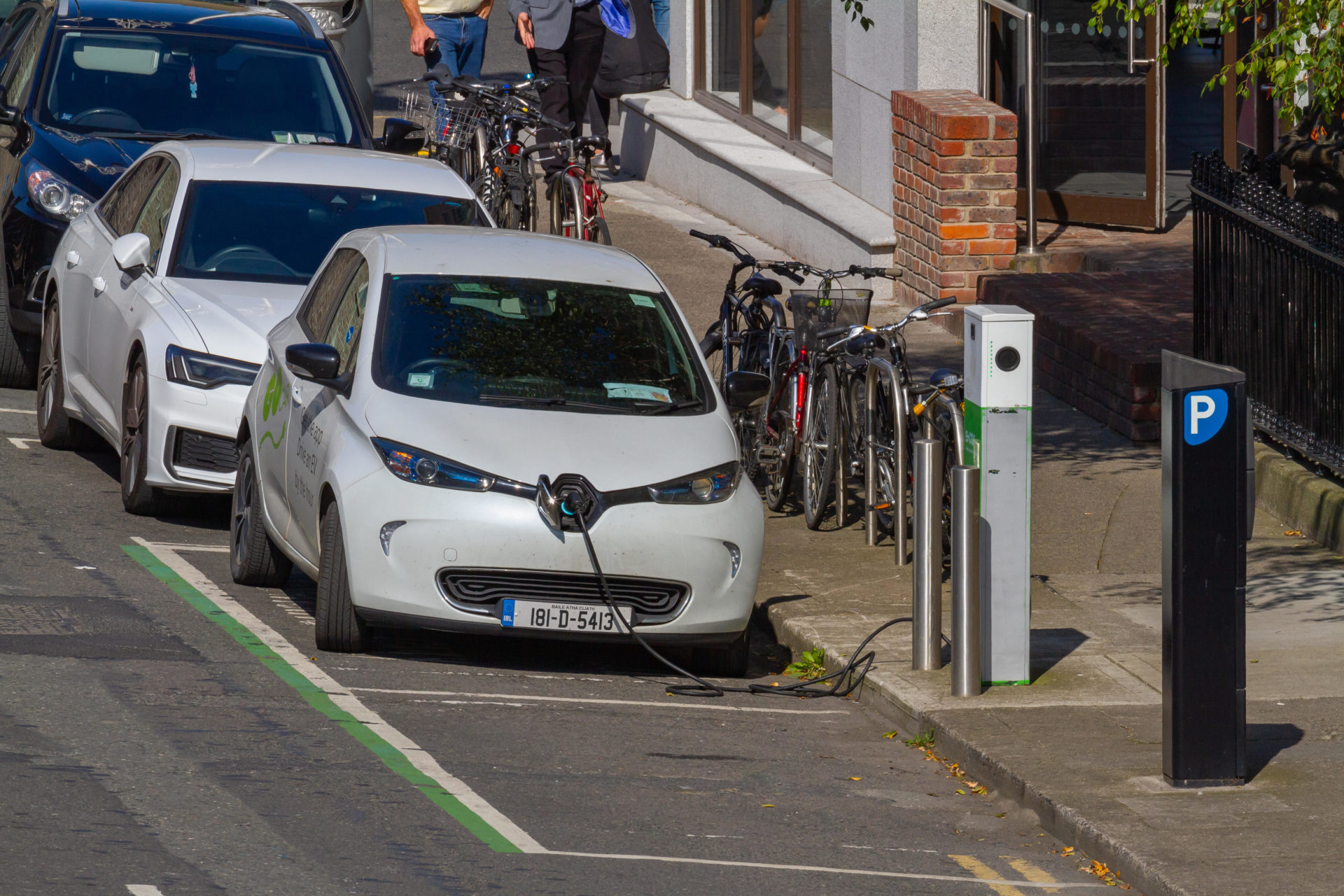The Government needs to take “radical decisions” and exempt EV charging infrastructure from planning requirements, a Fine Gael TD has argued.
In its 2023 Climate Action Plan, the Government announced it wanted 30% of the private car fleet to be electric by 2030.
However, while uptake is growing, the country is still expected to miss the target by some margin.
On Newstalk Breakfast, Dublin Bay South TD James Geoghegan said many of his constituents worry about how they would charge an EV, given the low number of public charging points.
“If you have a house that happens to have a driveway, you’re already exempt - you can get your charger installed,” he explained.
“But if you’re one of the 480,000 households that live in terraced houses or apartments in Dublin alone, you don’t have those exemptions.
“So, essentially, what some households have done is they’ve introduced charging arms that go over the road, over the footpath and they connect with the car.
“The problem with those charging arms is that they’re not planning exempt, so local authorities have issued planning enforcement notices against homeowners that have put that charging arm in their front garden to connect with their car.”
 An ESB Electric Vehicle Fast Charge Point in Dingle, County Kerry, Ireland. Picture by: Andy Gibson / Alamy.com.
An ESB Electric Vehicle Fast Charge Point in Dingle, County Kerry, Ireland. Picture by: Andy Gibson / Alamy.com.Since May this year, homeowners in England no longer need to apply for planning permission for EV charging infrastructure.
In Ireland, the Government is carrying out a public consultation into what should be exempted from planning permission.
Deputy Geoghegan said it is important that EV charging infrastructure should be included in the list of exempted items.
“Really, what I’m saying is, we need to show the same level of ambition when it comes to meeting our climate challenges,” he said.
“Specifically, when in relation to EV car chargers, by providing planning exemptions in relation to all kinds of car chargers.”
 An electric vehicle plugged in at charging point station. Picture by: Alamy.com.
An electric vehicle plugged in at charging point station. Picture by: Alamy.com.Deputy Geoghegan added that “radical decisions” are needed if the Government is to quickly increase the number of people buying EVs.
“The facts are that people making the switch, their numbers are flatlining,” he said.
“We’re not getting to the level that we need to; we’ve 118,000 EVs on the road right now.
“The 2030 target is 845,000.
“400 public chargers, just to give the example of Dublin - that’s not going to meet the needs of the 480,000 households who live in terraced households or apartments.”
From 2035, no new petrol and diesel (ICE) cars can be sold in the European Union.
However, there has been speculation that because Britain’s ban comes into effect five years earlier, Ireland could have a de facto ban from 2030 as car manufacturers stop making left hand drive ICE vehicles.
Main image: A charging arm for an EV. Picture by: NMD Electrical.









